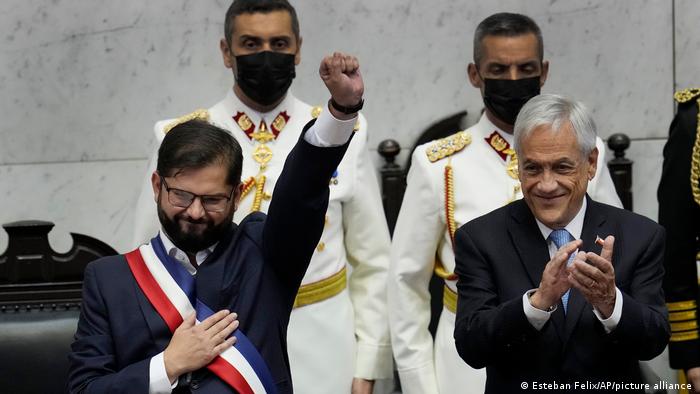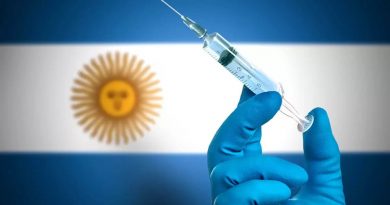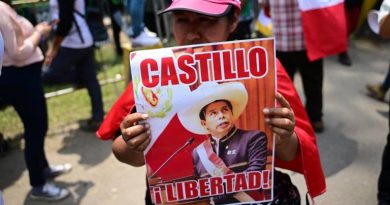Interview: Boric Presidente, Now What?
Gabriel Boric was sworn in as President of Chile on Friday. We spoke to Bruno Sommer, Editor of El Ciudadano, one of Chile’s leading progressive media outlets, to discuss what Chile and the world can expect from President Gabriel Boric.
What does his acceptance speech tell us about his prioties going forward?
I saw it as a conciliatory speech, but one in which he laid out his principles and made reference to Salvador Allende. Just before he gave his speech, he went to the grave of Salvador Allende, then on to La Moneda (presidential palace) to speak. This was a symbolic act that meant a lot to his left-wing supporters. Let’s see if he can live up to that legacy, I hope he can at the very least have some similarities to it.
US media has praised Boric as a ‘democratic progressive’ who is unlike the anti-imperialist forces in the region. Is this an opportunity for the US to strengthen its reach?
I think the United States government is very happy to have Gabriel Boric in the presidency. We have also heard that Boric has agreements with the US, following meetings between his advisors and White House officials. This isn’t official or confirmed information, but we have heard that Boric’s campaign promises about taking back control of natural resources will not happen because this policy would hurt US interests in Chile.
This is not confirmed of course, but on the one hand, we have this agreement, on the other hand, we have the constituent process [drawing up a new constitution] which believes that the natural resources of Chile belong to the state. We’ll have to see if this policy can be implemented through that mechanism.
I have known Gabriel Boric for many years. I remember the admiration he had for Hugo Chávez and other leftist Presidents in the region. This position softened over the years, I think it was because he sought to win over voters in the center, he moved from a radical left position towards a more centrist one in order to win the presidency. Now that he’s won, let’s see if he’ll return to his origins or if he’ll continue his journey towards the political center.
His Economy Minister is an ex-president of the Central Bank from the neoliberal period. Will Boric be able to satisfy the expectations of his supporters on economic issues?
His cabinet is made up of political figures and technocratic figures. This composition exists in order to give Boric a level of governability. As part of this deal, he gave the Economy Ministry to an ex-president of the Central Bank who is close to the Socialist Party (PS), but who has a neoliberal vision regarding the economic management of the country. Furthermore, Boric is inheriting a state budget that is lower than what his predecessors had and on top of that we have an inflation crisis that is now worsened by the current war in Ukraine.
The Economy Minister has promised to implement Boric’s policies as they were during the campaign, but we’ll have to see if they do that in reality. Boric made a number of promises in regard to historic demands about natural resources and free education. Every government has promised solutions on these issues, but it was never consolidated, let’s hope that now it may happen.
Street mobilizations will be very important if he’s to keep his promises because he’ll face pressure to make deals with the elites. The left has won political power, but it has not won economic power or media power. Let’s hope that he and the Economy Minister keep their promises about their campaign policies, we mustn’t forget that the campaign policies were drawn up in consensus with the Communist Party of Chile. Gabriel Boric was the candidate of Convergencia Social and the Communist Party of Chile.
How will the process of drawing up a new constitution affect the government?
The deadline for drawing up the new social contract is in June. The most significant change is that Chile would become a Plurinational State, following the path of Bolivia but with our own characteristics, our new constitution would make us a Plurinational State. The state will also become more focused on regions, rather than the current centralized model where everything happens in Santiago. There is also a desire for an ‘ecostate’ with a focus on environmental issues.
There is another discussion in this process about the nationalization of natural resources, particularly copper and lithium, but on this issue, there is huge pressure from elite interests. In regard to media, there is also the proposal to support alternative and community media and put it on an equal footing with state and private media. There are also proposals to reform the justice system and make it more democratic. There is also a space for ordinary citizens to submit proposals and thousands of these proposals have been received.
All these proposals can only happen with a 2/3rds vote. Boric technically has this majority, but in reality, the Socialist Party (PS) has sided with the right on some of these issues to block them. Nevertheless, this is a historic opportunity, this is the first time in Chilean history that people have the right to participate in drawing up the constitution, not just the oligarchs and the military.
By Kawsachun News



